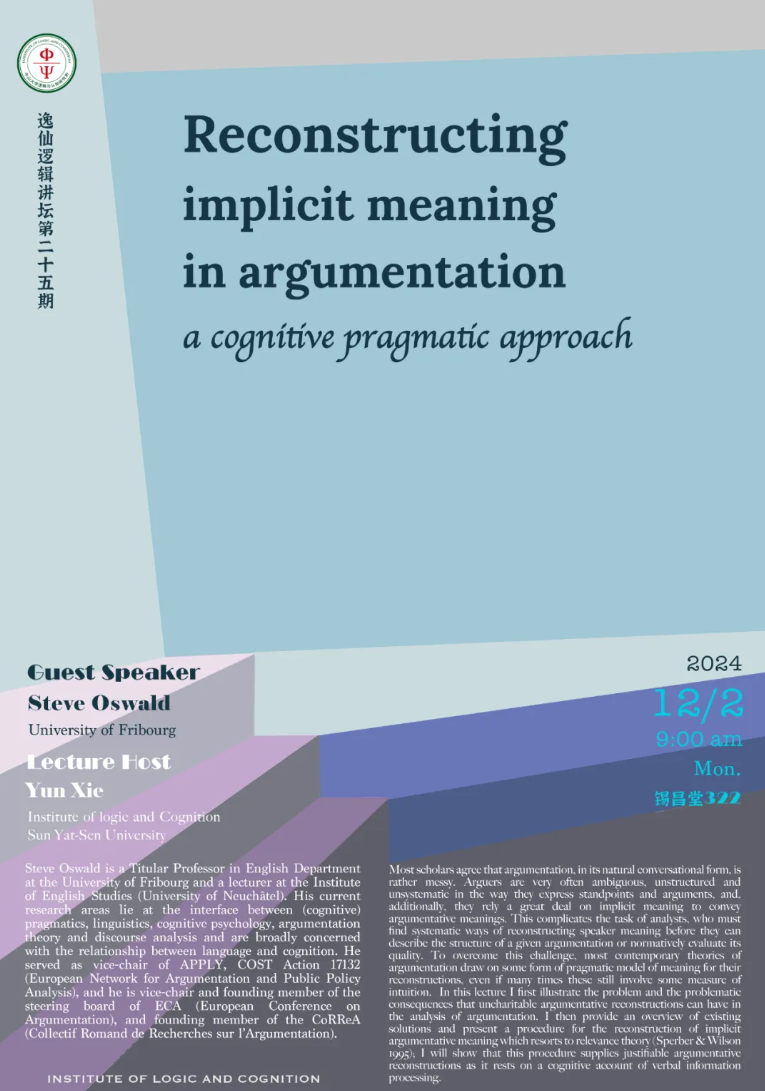逸仙逻辑讲坛第二十五期|Steve Oswald:论证中隐含意义的重构:一个认知语用学进路的尝试
Reconstructing implicit meaning in argumentation: a cognitive pragmatic approach(论证中隐含意义的重构:一个认知语用学进路的尝试)

第二十五期
逸仙逻辑讲坛
题目:Reconstructing implicit meaning in argumentation: a cognitive pragmatic approach(论证中隐含意义的重构:一个认知语用学进路的尝试)
主讲人:Steve Oswald 瑞士弗里堡大学
主持人:谢耘 中山大学逻辑与认知研究所
时 间:12月2日(周一)上午9:00
地 点:中山大学锡昌堂322室
主办方:中山大学逻辑与认知研究所
主讲人简介
Steve Oswald is a Titular Professor in English Department at the University of Fribourg and a lecturer at the Institute of English Studies(University of Neuchâtel). His current research areas lie at the interface between (cognitive) pragmatics, linguistics, cognitive psychology, argumentation theory and discourse analysis and are broadly concerned with the relationship between language and cognition. He served as vice-chair of APPLY, COST Action 17132 (European Network for Argumentation and Public Policy Analysis), and he is vice-chair and founding member of the steering board of ECA (European Conference on Argumentation), and founding member of the CoRReA (Collectif Romand de Recherches sur l’Argumentation).
内容简介
Most scholars agree that argumentation, in its natural conversational form, is rather messy. Arguers are very often ambiguous, unstructured and unsystematic in the way they express standpoints and arguments, and, additionally, they rely a great deal on implicit meaning to convey argumentative meanings. This complicates the task of analysts, who must find systematic ways of reconstructing speaker meaning before they can describe the structure of a given argumentation or normatively evaluate its quality. To overcome this challenge, most contemporary theories of argumentation draw on some form of pragmatic model of meaning for their reconstructions, even if many times these still involve some measure of intuition. In this lecture I first illustrate the problem and the problematic consequences that uncharitable argumentative reconstructions can have in the analysis of argumentation. I then provide an overview of existing solutions and present a procedure for the reconstruction of implicit argumentative meaning which resorts to relevance theory (Sperber & Wilson 1995); I will show that this procedure supplies justifiable argumentative reconstructions as it rests on a cognitive account of verbal information processing.


